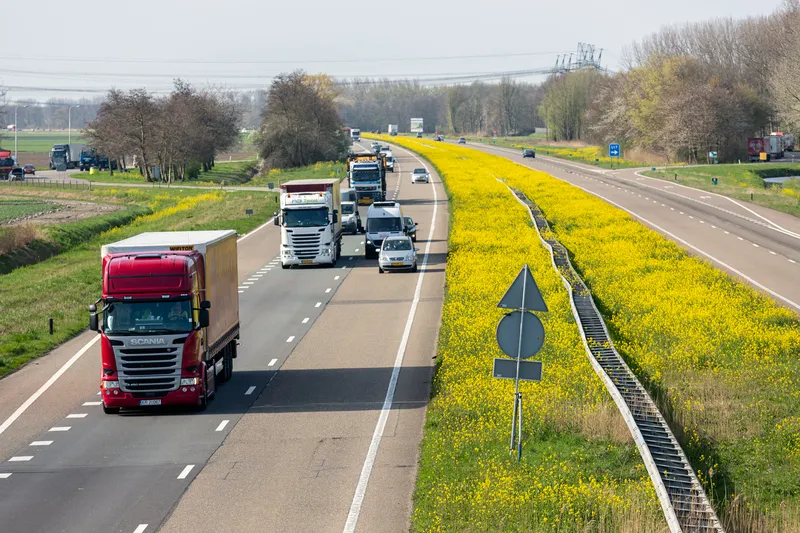
The Netherlands Vehicle Authority (RDW) has appointed a consortium to collect the planned truck levy, which is due to come into force on Dutch roads in 2026.
Triangle - a collaboration between Via Verde Portugal, Ascendi O&M and Yunex Traffic - won the 10-year deal after a European tender process for the new road pricing scheme.
When it is introduced, truck owners will pay per kilometre driven on motorways, a number of N-roads and a few municipal roads in the Netherlands.
At the same time, the Eurovignette will be abolished and motor vehicle tax for trucks "will be reduced to a minimum", RDW insists.
Net proceeds of the levy will go to subsidies for the sustainability and innovation of road transport, the agency adds.
Triangle will provide truck owners with the necessary on-board equipment and are responsible for collecting the levy and paying it to the government.
National and international truck owners will be able to pay the truck levy in the Netherlands at Triangle or at one of the European operating service providers (EETS providers), RDW says.
"By awarding the contract to Triangle, we are taking an important step towards the planned start of the truck levy in 2026," says Jantina Woudstra, general manager of the RDW. "It is important that the services of Triangle and its partners are easy to use and accessible to all truck owners."
“The Netherlands has been at the forefront of sustainable and efficient mobility solutions for years," says Eduardo Ramos, CEO of Via Verde and leader of Triangle.
"The contract we have won through a European tender for the truck toll on the Dutch road network will be an example for other countries opting for smart and sustainable mobility.”
RDW, the Central Judicial Collection Agency, Rijkswaterstaat (Ministry of Infrastructure and Water Management) and the Environment and Transport Inspectorate are responsible for making the levy system work.










